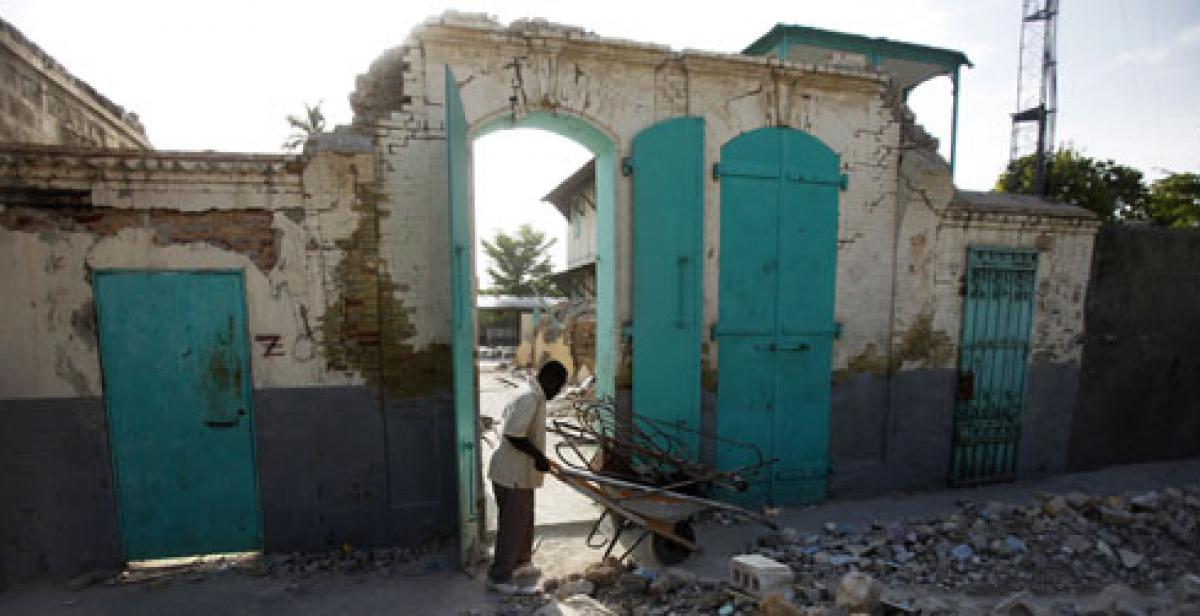Progressio welcomes a statement issued last month by the Jesuits of Haiti, to mark the fourth anniversary of the devastating earthquake of January 2010.
Four years on, despite all the international attention and billions in aid, the Jesuits’ statement outlines how “the hope that Haiti was finally going to know better days” has not been realised:
- More than 175,000 Haitians still live under tents or in fragile temporary shelters
- A true plan for national reconstruction (total, participatory, realistic) is still awaited
- The factors which meant the earthquake caused so many deaths still persist: old and insecure buildings, administrative centralism, poverty and rural exodus, lack of education of the population on natural disaster and risk management
- The “secular evils” of extreme poverty, social exclusion, and blatant inequalities still persist.
Broken promises on aid spending
Progressio is working to support our partner organisation CERFAS in monitoring aid spending, but the reality remains bleak, say the Jesuits:
- Broken promises of bilateral and multilateral donors made at the time of the New York conference in June of 2010
- In certain cases, more than 90% of the funds disbursed by certain major Western countries return to their source and are not beneficial either to the victims of the earthquake, or to Haitian companies
- The marginalization of national stakeholders (government, civil society organisations, etc) in decision-making on reconstruction.
Pro-poor plan for development is needed
The statement calls on:
- The Haitian government to provide a true national plan for development, with a realistic national housing policy
- International decision makers to respect the firm will of the citizens of their country to help Haiti generously and to use more ethics in their economic and political relations with Haiti
- Businesses and the private sector (Haitian and international) “not to yield to the blind dictatorship of money and profit and to let themselves be touched by the cries of the poor”
- Haitian civil society organizations, rural and suburban community organizations to continue to “fight sincerely for a new Haiti”, with “the awareness that the future of the country depends mainly on their efforts”.
Enormous challenges still ahead
Progressio’s policy officer Lizzette Robleto-Gonzalez said: “Reconstruction of a whole nation cannot happen in four years, especially a country like Haiti, which was already the poorest nation in the Western hemisphere before the earthquake. The challenges were enormous before the earthquake let alone after. We need to continue to support the Haitian people and civil society to play their part in building a stronger society.”
Progressio's work to support Haiti's people
Since the earthquake, Progressio has worked to highlight and support the role of Haitian civil society in rebuilding Haiti.
Our 2010 report Haiti after the earthquake called for “the full engagement of civil society in the long-term reconstruction and development of Haiti”.
Our 2012 report Thinking local in Haiti supported the call by civil society organisations for effective decentralisation, without which civil society is unable to full participate in reconstruction and development.
We are continuing to support international efforts to promote development in Haiti, facilitating a recent visit to the UK by a Haitian parliamentary delegation (arranged through the All-Party Parliamentary Group on Haiti), and we will be publishing a further report on the role of civil society in reconstruction later this year (2014).
Extracts taken from: Statement from the Jesuits of Haiti, from their collaborators and friends on the occasion of the closing ceremony of the Jesuit International Forum, held at 18, Boulevard 15 Octobre, Tabarre, Port-au-Prince, Haiti, from January 9-12, 2014.
Photo: A man wheeling a barrow through the rubble after the 2010 earthquake, Port-au-Prince, Haiti (photo © Natasha Fillion/Progressio)



